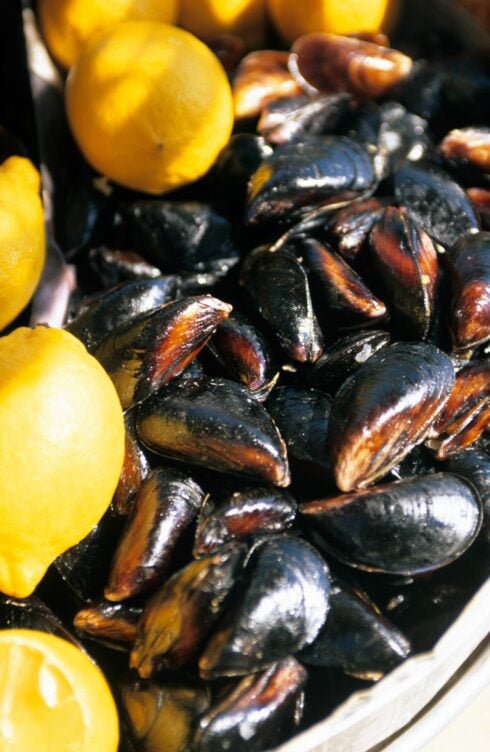
AN Olive Press online poll has revealed that almost three-quarters of expats in Spain would rather remain in the EU than leave.
However, in an exclusive poll of over 2,100 readers, we discovered that an eye-catching 27% still want Britain to leave the union, despite having a potentially detrimental effect on their healthcare, pensions and freedom of movement.
As the UK edges ever nearer to our supposed departure on October 31, anxiety levels are rising among many of the hundreds of thousands of British expats around Spain.
So concerned are the estimated three million Brits, who live around Europe, that the British Foreign Office has just launched a €3.2m campaign to help calm fears – and coordinate advice.
Despite the Spanish government and Junta insisting the rights of British expats will be respected, nothing has been set in stone.
The continuing uncertain status of expats in Europe is already limiting our ability to plan or make life-changing decisions, while some expats have already been turned down for everything from mortgages to job interviews, claims Germany-based expat group, The British in Europe Coalition.
“Confusion over immigration status, the British settled status scheme, and the right to return to the UK or the continent with our families is causing turmoil to Brits in Europe and EU citizens in the UK,” explained spokesman Rose Newell.
“Many families now face the risk of being forced to choose between loved ones back home and partners or children – and the reality that families will be kept apart or broken up in the event of no deal.
“Failure by the UK to ensure consistent reciprocal ring-fencing of citizen rights in the event of a no deal means British citizens become bargaining chips.
“A no-deal scenario is a disaster for British citizens in the EU, who will face 27 different no-deal solutions across the EU.
“The resulting solutions – where provided at all – cannot possibly cover areas currently coordinated across the EU, such as social security.
“ The loss of freedom of movement, a right many of us freely exercise, is something many British citizens will mourn. Many people’s livelihoods, especially those of frontier workers in Gibraltar are already at risk – and this will worsen in the event of a no-deal Brexit.”
A leaked report from the UK Treasury two weeks ago, called Yellowhammer, backed this up warning of potentially four hour queues getting in and out of the Rock.
It also warned that British citizens travelling to the EU could be limited to 90-day stays and subject to tighter passport controls.
It added that in the worst case scenario British expats will lose associated rights and access to services, which may include healthcare.
What grates many expats is the fact that so many were unable to vote in the last referendum due to a soon to be scrapped 15-year rule.
As Rose Newell explained: “British citizens who have lived outside the country for 15 years or more have been disenfranchised and unable to have their say on a matter which drastically affects their lives.”
And she estimates that over 80% of all Brits living outside the UK have lost their right to vote, which – if true – makes a mockery that it was a democratic vote, as local British businessman Peter Langdale, based in the Axarquia, near Malaga, points out.
“It is a complete farce and anything but a democratic decision,” insists the UK’s biggest importer of parsley and coriander, who works with four out of the big five supermarkets in Britain.
To gain deeper insight into the issues facing us all as we approach deadline day, we spoke to ten expats across the spectrum of ages and backgrounds for their views…
Christine Wibbett, 68, Estepona, Malaga, retired:

“I didn’t vote but I am happy to leave the EU. We’ve gone too far down the line for anything to be reversed now. But, at the moment, it’s just a bloody mess. Theresa May tried her best but, like the rest of them, politicians are more concerned with their own status than anything else.”
Peter Langdale, 64, farmer, Axarquia:

“It’s a complete farce. They talk about it being a democratic decision, but it clearly wasn’t as only a quarter of the country voted. Us expats, who are as British as anyone back home, were not allowed to vote if we’ve lived in Spain for 15 years. We were denied a vote – that in itself is anti-democratic. The people who live here and voted leave, they think it’s a golf club. They have no idea what Brexit will do to our economy. It will impact our import business as bringing in food to the UK will go through custom entry, meaning further delays for our clients and the British public. They say they voted leave because of immigration. Well, I’m sorry, but I’m an immigrant, and like most other immigrants, when I moved country, I just wanted to work. If they all leave the UK, what will happen to the NHS?”
David Baird, 83, freelance journalist, Frigiliana, Malaga:

“Geographically and historically Britain needs to be a part of the EU. I just can´t believe the British public can be that stupid to think we need to leave. I think Parliament, at the moment, is just screwed in every way.”
David Giles, 61, concert promoter, Marbella, Malaga:

“I would have liked to remain. If something is not broken, why bother to try and fix it? To remain in the EU makes sense in every way – both economically and strategically for the UK. I think the reason people in the UK want to leave is because of this old ideology. This post-World War 2 idea about the country being a global superpower, which just isn’t the case anymore.”
Guy McCrow, 35, owner of the Beach House Marbella:

“Brexit is a perception thing and as a business owner, I’ve tried to stay out of it as much as possible. It’s really a load of hot air. Some of our customers ask us about it, whether we are worried what it will do to our business – but, no I don’t – it’s all perception. Our English customers seem to have put the whole thing out of their heads, too, partying harder this summer than ever before.”
Dean Holie, 60, owner of Dean’s Charter Fishing, in Duquesa:

“I voted leave, and I feel even more strongly about that now than before. Of course it is going to be tough for the UK, but I believe the country will come back stronger than ever before. I believe us expats will be fine after a couple of years of small issues.”
Alan David Ashley, 75, retired factory manager, Malaga:

“I was torn. I wasn’t sure whether it would be good or bad to leave the EU. The thing is, I didn’t have all the facts, so I couldn’t make a fair decision. However, I don’t believe that the UK will leave because there are too many ifs and buts. It’s not like the old days – we don’t have a strong enough prime minister to see us right.”
Sandra Eveleigh, 71, Manilva, Malaga, retired:

“Having been here for 20 years I wasn’t allowed to vote – but I wished the referendum turned out to be remain. I believe there are a lot of expats out there with illnesses like my husband’s who are very stressed about what impact Brexit will have on the treatment they receive – and the worry of it all can only be bad for their health.”
Ed Allison-Wright, 31, director at Fairhomes:

“Gibraltar has the potential, resilience and determination to actually come out of Brexit very well. It brings lots to businesses and the talent within the area remains globally competitive. Despite the uncertainty associated with Brexit, the lifestyle choices between Gibraltar and northern European destinations remain clear and compelling.”
Karen Livermore, 55, ex-Editor Woman and Woman’s Own

“My partner and I only moved here nine weeks ago, and it was a joy to escape the ridiculousness of the UK government and the whole Brexit shambles. I think at the time of the referendum much was made of the horrors of belonging to the EU, migration and of course the tactics of Nigel Farage, that the whole issue became clouded and the British public did not know what they were voting for. Since then, global economies have changed and people in the UK are now becoming fully aware of what leave will mean for them. If there were a second referendum the outcome would be very different, I’m sure of that. And anyone thinking Trump will be there to hand the UK massive trade deals… really?”
Oscar Gonzalez, ex diplomat, based in Marbella
“The arguments put forward by the three Brexiteers on your article last issue boil down to the usual vague, populist, stubborn and provincial reasons lo leave the EU: Proud to be British, regaining sovereignty, etc. On the other hand one could write a 500-page book with solid reasons to remain such as certification of medicaments, fast movement across EU countries of human organs for transplantation and of short life isotopes for nuclear medicine!The ailments of the UK (like de-industrialization, the selling of important and strategic assets i.e. the remains of the once-proud automotive industry to foreign interests, immigration, etc) have little to do with the EU. Churchill once said that democracy was the second-best way to run a country, the first best not yet found. The same with the EU.”
Click here to read more News from The Olive Press.









Neither British expats nor the people in Britain have a say on Brexit. This is not a matter of democracy, it`s a matter of financial gambling only.
British hedgefonds having a stake in short positions on the London Stock Exvchange await a big gain of more than 8.3 billion pound betting on the devaluation of the British pound in case of a No Deal Brexit on October 31.
Until May 2019, ten new bets on a decline of the British pound had been taken out at the LSE. After Boris Johnson on May 16 had applied for the leader of the Conservative Party, those numbers skyrocked to 100 new bets per week.
According to the British Electorial Commission, between May 10 and July 23 those hedgefonds have donated more than 432.500 pound to Boris Johnson. They also donated 2 million pound to the Leave campaign. Does this £8.3 billion bet explain why the Prime Minister has said that he would rather “die in a ditch” before asking the EU for an extension? Under the Ministerial Code, Government ministers must have ‘no actual or perceived conflicts of interest’. But what could be a bigger conflict of interest than those bankrolling the Prime Minister also having a vast financial interest in a catastrophe for Britain?